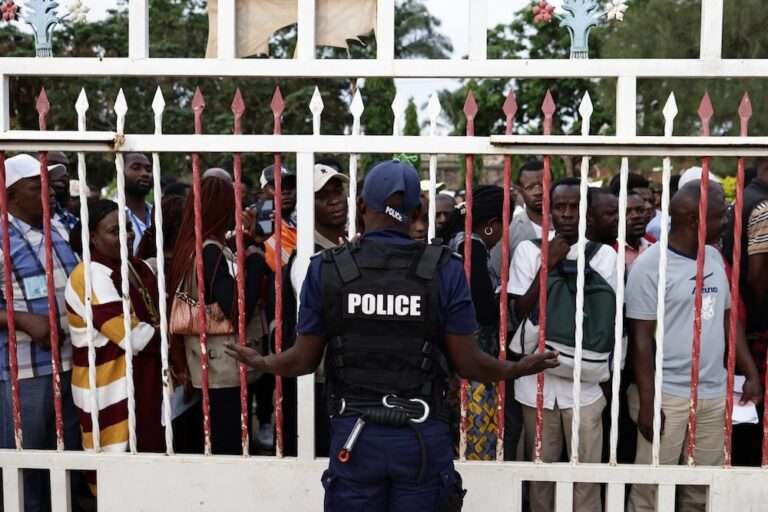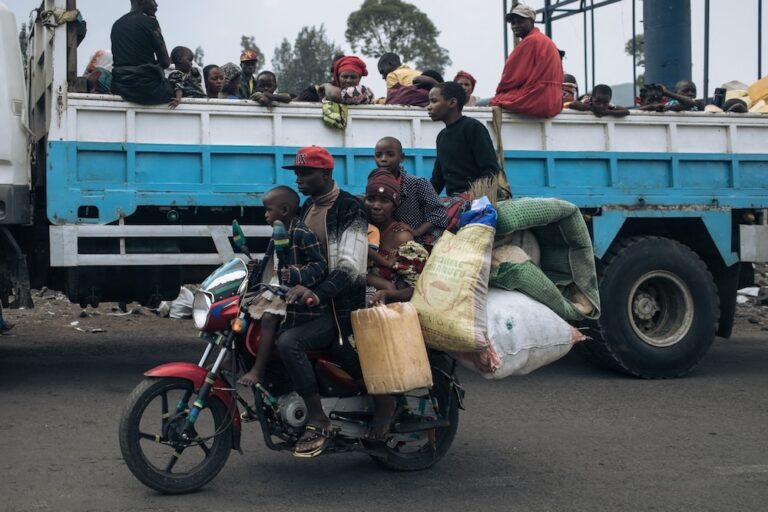(JED/IFEX) – JED has expressed serious concern following the 11 January 2006 closure of Radio Mwangaza, broadcast from Kisangani in northeastern Democratic Republic of Congo (DRC). Two officers from the Kisangani Court of Appeal Prosecutor’s Office sealed the doors of Radio Mwangaza at the instigation of the provincial director of the National Society of Publishers, […]
(JED/IFEX) – JED has expressed serious concern following the 11 January 2006 closure of Radio Mwangaza, broadcast from Kisangani in northeastern Democratic Republic of Congo (DRC).
Two officers from the Kisangani Court of Appeal Prosecutor’s Office sealed the doors of Radio Mwangaza at the instigation of the provincial director of the National Society of Publishers, Composers and Authors (Soneca), Mr. Bamwenela.
The Soneca was penalising the radio station for not having paid a monthly copyright fee of US$10 for the music it broadcasts. According to radio director Jean-Pierre Lifoli, Bamwenela never presented any official documentation from the Soneca. Bamwenela initially called for the radio station to pay US$1,000 in copyright fees on 29 December 2004, two weeks following the station’s launch. Some time later, upon reviewing the amount and finding that “the radio did not have enough money,” the director changed the fee owing to US$500. Eventually the fee due was reduced to US$10.
On 25 June 2005, Célestin Bwanga, Jean-Pierre Lifoli and Albert Djoke, respective programming directors of Amani radio television, Radio Mwangaza and Radio Inter Viens et Vois, were called to the Kisangani High Court for “non-payment of US$1,000 in taxes to the Soneca.” However, only Radio Mwangaza was punished. According to JED, the decision to close the radio station occurred after the broadcast of a message “asking the government to respect its commitments in order to avoid a student and nurses’ strike that had begun in Kisangani two weeks earlier.”
While recognising the right of Soneca to collect the fees due, JED estimates that these taxes must be fixed through a common arrangement so that they do not strangle non-profit, community media outlets. JED also considers “putting economic pressures on the media as one of the most damaging forms of silencing freedom of expression, hampering the media’s independence and professionalism, particularly during the current pre-electoral period in DRC when politicians seek to gain control over the media.”


